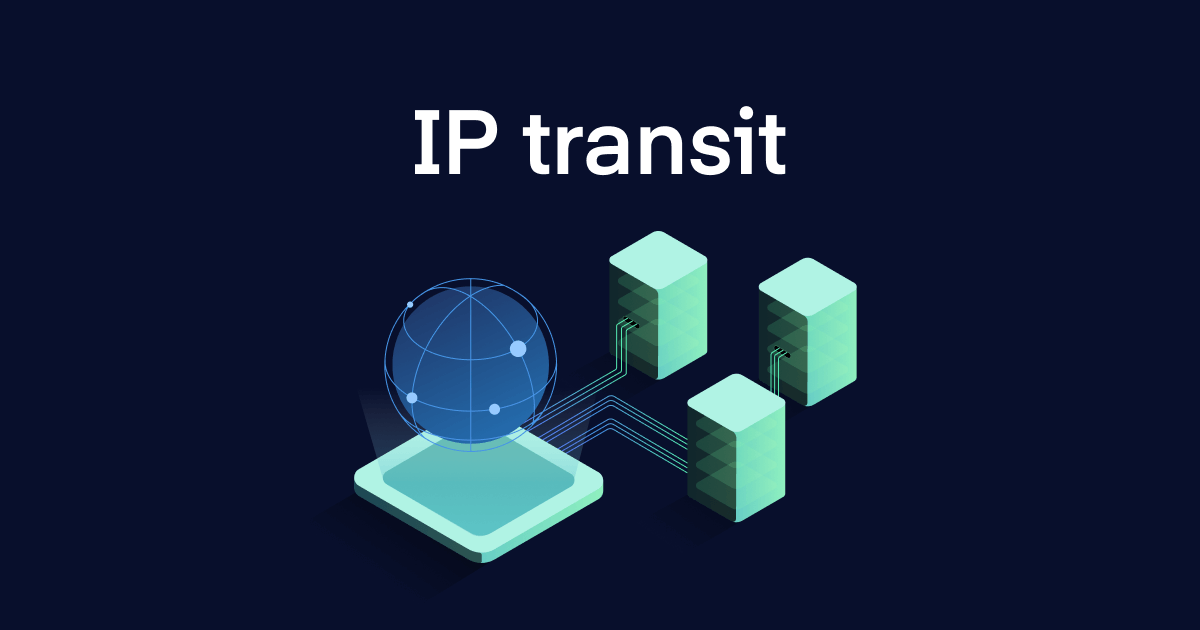In the ever-evolving landscape of internet connectivity, both businesses big and small depend on IP transit to give seamless access to the online world. IP transit is the heart of modern communications networks, from enabling cloud-based services to supplying platforms for e-commerce. In this post, we’ll examine the fundamentals of IP transit, the function of IP transit providers, the array of services they provide and how businesses can take advantage of IP transit prices and costs.

IP Transit, also referred to as Internet Transit, is a service which allows traffic from networks to “transit” or traverse networks. It allows users to connect with the world wide web. IP transit companies are businesses which own the infrastructure to transmit data packets across networks. They play a crucial role in making sure that internet connectivity is secure and reliable for users and businesses.
When it comes to IP transit services, businesses have several options to choose from. Some providers provide basic transit services that allow access to the Internet without any modifications or extra features. Others offer more advanced services, such as managed IP transit that includes additional monitoring, support, as well as security options. The kind of service you choose depends on the needs and demands of your business.
Pricing is among the most important factors in the selection of the right service provider. IP transit pricing can vary dramatically based on various aspects like bandwidth requirements, geographic location, and service level agreements. It is important for businesses to understand the different pricing and cost structures offered by providers in order to make educated choices and gain the best value out of their investment. For more information, click IP Transit Costs
Business owners should not just focus on pricing, but also dependability and performance. Carrier-grade networks featuring 100G and 400G backbone connectivity provide the scalability and reliability required to help mission-critical applications and services. End-to-end automation increases efficiency and ensures the smoothest user experience.
If you are a business looking to improve their network connectivity, IP-Access offers a fully customizable and flexible solution. This is a great option for companies that have older installations or require special features. Businesses can alter their connectivity by utilizing features such as IPv4/31 and IPv6/127. default transfer networks.
IP-Access provides basic DDoS protection against bulky attacks as part its internet access. This provides an additional layer of security and security to business networks. This protection helps safeguard against interruptions in service and the potential loss of revenue due to cyber threats.
For businesses of all sizes, Inter.link Portal offers a easy and effective way to use IP transit. In just a few minutes, companies can setup IP transit by selecting the preferred location and bandwidth requirements. This makes the process easier and saves time as well as resources. Businesses can focus on their primary business.
IP Transit is essential to the internet of today. It allows companies to connect to communicate and collaborate with other companies across the globe. Knowing the fundamentals of IP Transit, the role of IP Transit providers, their wide range of services, as well as how they calculate pricing and costs will assist businesses in making informed choices. They also can ensure that they have the connectivity to succeed in the technological world of the present. In terms of accessing cloud services or powering online shopping platforms or connecting remote offices, IP transit is at the heart of modern communications networks.
The post Scalable Solutions: Tailoring Ip-Access For Your Business appeared first on T Berlin.